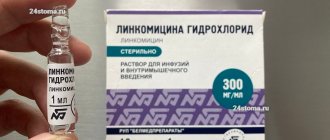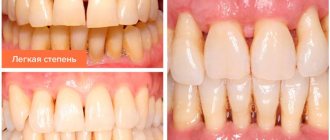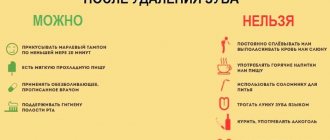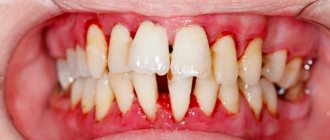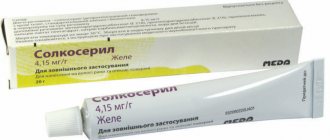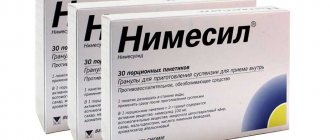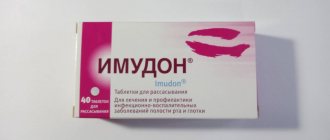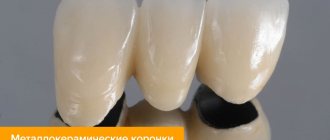Compound similarities
These drugs have the same release form - water-soluble powder. Their therapeutic effects are similar. Both drugs effectively reduce temperature and eliminate pain.
Nemulex contains the active substance – nimesulide.
Additional components:
- macrogol;
- sucrose;
- flavoring agents;
- citric acid;
- silicon.
The medicine has analgesic, anti-inflammatory, antipyretic, and antiaggregation properties. The product has good digestibility. The medicine remains at its highest concentration in the blood for 2.5 hours.
The drug quickly enters the lesion and is excreted by the liver and kidneys. Nemulex suppresses prostaglandins in the inflammatory focus. The medicine is used to treat negative symptoms. The medication eliminates pain and prevents the development of inflammation.
Indications for use:
- arthritis;
- muscle pain;
- joint pain;
- bursitis;
- tenosynovitis;
- pain during menstruation;
- headache;
- toothache;
- pain syndrome during the development of intervertebral hernia;
- pain after injuries and operations.
The product does not have a therapeutic effect, but eliminates pain and inflammation of an episodic nature.
Indications for use of Nemulex: arthritis, muscle pain, joint pain.
Nimesil is produced in the form of granules for oral administration and suspension. The active substance is the same - nimesulide.
Additional components:
- macrogol;
- maltodextrin;
- lemon acid;
- sucrose;
- flavorings.
The medicine is a non-hormonal anti-inflammatory drug. It has anti-inflammatory, antipyretic and analgesic properties.
The drug reduces the synthesis of prostaglandins by inhibiting cyclooxygenase. After oral administration, the drug is well absorbed, reaching its highest concentration in the blood after 2-3 hours. The drug is metabolized in the liver.
Indications for use:
- elimination of pain syndrome;
- relief from primary dysmenorrhea.
Composition and properties of the powder
The active ingredient of "Nimesil" is nimesulide, which is part of the group of non-steroidal anti-inflammatory drugs. Available in sachets, in powder form, and taken after dissolving in water. The maximum concentration in the blood is determined 2-3 hours after application, the effect lasts 4-6 hours. The analgesic effect lasts approximately this long. The substance binds to blood proteins, passes through the liver and kidneys, and is excreted in the blood and urine. Main effects on the body:
- anti-inflammatory;
- pain reliever;
- antipyretic.
Differences between Nimesil and Nemulex
Despite the fact that these drugs are analogues, they also have differences.
Main differences:
- the price of Nemulex is less than Nimesil;
- they are made by various manufacturers;
- the taste and smell of the powder differs;
- Nemulex granules are larger than Nimesil;
- Nemulex in powder form often takes longer to dissolve in water.
But these differences are not significant; they do not affect the effectiveness of the drugs. Thus, apart from the price and slight differences in the composition of the components, these drugs do not differ in anything else. Both medications effectively eliminate pain and alleviate the patient's condition.
These medications should not be taken together, because they both contain the active ingredient nimesulide, and if taken at the same time, there may be an overdose that will cause side effects.
Both drugs have the same indications for use:
- osteoarthritis;
- arthritis;
- myalgia;
- arthralgia;
- headache and toothache.
Contraindications
Nemulex and Nimesil have the following contraindications:
- intolerance to the components of the drug;
- bronchospasm;
- alcoholism;
- gastrointestinal bleeding;
- stomach and duodenal ulcers;
- cerebrovascular bleeding;
- increased bleeding;
- bleeding disorders;
- severe heart failure;
- liver and kidney dysfunction;
- flu;
- high body temperature;
- children under 12 years of age;
- pregnancy in the third trimester;
- lactation;
- hyperkalemia;
- if the patient has undergone coronary artery bypass surgery;
- diabetes.
Nimesil has the following contraindications: intolerance to the components of the drug, bronchospasm.
These drugs should not be used simultaneously with antiplatelet agents, glucocorticosteroids and anticoagulants.
Nimesulide
Undesirable side effects can be minimized by using the drug in the minimum effective dose with the minimum duration of use necessary to relieve pain.
There is evidence of very rare cases of serious reactions from the liver, including cases of death, associated with the use of nimesulide-containing drugs. If symptoms similar to signs of liver damage appear (anorexia, itching, yellowing of the skin, nausea, vomiting, abdominal pain, dark urine, increased activity of liver transaminases), you should immediately stop using nimesulide and consult a doctor. Repeated use of nimesulide in such patients is contraindicated. After 2 weeks of using the drug, monitoring of liver function parameters (“transaminases”) is necessary.
Liver reactions, which are in most cases reversible, have been reported with short-term use of the drug.
While using nimesulide, the patient should refrain from taking other analgesics, including NSAIDs (including selective COX-2 inhibitors).
Nimesulide should be used with caution in patients with a history of gastrointestinal diseases (ulcerative colitis, Crohn's disease), since exacerbation of these diseases is possible.
The risk of gastrointestinal bleeding, peptic ulcer/perforation of the stomach or duodenum increases in patients with a history of gastrointestinal ulceration (ulcerative colitis, Crohn's disease), as well as in elderly patients, with an increase in the dose of NSAIDs, so treatment should begin with the lowest possible dose. In such patients, as well as in patients who require the simultaneous use of low doses of acetylsalicylic acid or other drugs that increase the risk of complications from the gastrointestinal tract, it is recommended to additionally prescribe gastroprotectors (misoprostol or proton pump blockers). Patients with a history of gastrointestinal disease, especially older patients, should report new gastrointestinal symptoms (especially symptoms that may indicate possible gastrointestinal bleeding) to their physician.
Nimesulide should be administered with caution to patients taking drugs that increase the risk of ulceration or bleeding (oral corticosteroids, anticoagulants such as warfarin, selective serotonin reuptake inhibitors or antiplatelet agents such as acetylsalicylic acid). If gastrointestinal bleeding or gastrointestinal ulceration occurs in patients taking nimesulide, treatment with the drug must be stopped immediately.
Given reports of visual disturbances in patients taking other NSAIDs, if any visual disturbance occurs, the use of nimesulide should be immediately discontinued and an ophthalmological examination performed.
The drug may cause fluid retention in tissues, so patients with arterial hypertension, renal and/or heart failure, coronary heart disease, peripheral arterial disease and/or cerebrovascular diseases, with risk factors for the development of cardiovascular diseases (for example, hyperlipidemia, diabetes mellitus) diabetes, smokers) nimesulide should be used with extreme caution. If the condition worsens, treatment with nimesulide should be discontinued.
Clinical studies and epidemiological data suggest that NSAIDs, especially in high doses and with long-term use, may lead to a slight increase in the risk of myocardial infarction or stroke. There is insufficient data to exclude the risk of such events when using nimesulide.
If signs of a “cold” or acute respiratory viral infection occur during the use of nimesulide, the drug should be discontinued. Nimesulide can change the properties of platelets, so caution must be exercised when using the drug in people with hemorrhagic diathesis, however, the drug does not replace the preventive effect of acetylsalicylic acid in cardiovascular diseases.
Elderly patients are especially susceptible to adverse reactions to NSAIDs, including the risk of life-threatening gastrointestinal bleeding and perforation, and decreased renal, liver, and cardiac function.
When taking nimesulide for this category of patients, proper clinical monitoring is necessary. There is evidence of rare cases of severe skin reactions (such as exfoliative dermatitis, Stevens-Johnson syndrome, toxic epidermal necrolysis) when taking NSAIDs, including nimesulide. At the first manifestations of a skin rash, damage to the mucous membranes or other signs of an allergic reaction, nimesulide should be stopped immediately. The use of the drug may adversely affect female fertility and is not recommended for women planning pregnancy.
How to take Nimesil and Nemulex
Nemulex is taken as follows. It is necessary to dissolve the contents of the package in 0.5 cups of boiled water. For adult patients and children over 14 years of age, take 100 mg 2 times a day. The medicine is taken after meals. The course of treatment should last no more than two weeks.
Nimesil is taken in a short course. The product is drunk after meals. The course of treatment should not last more than 14 days. For adults, 100 ml of the active substance (1 sachet of powder) is prescribed 2 times a day. Children and the elderly are prescribed the same dosages. Before taking the medicine, you need to pour the contents of the sachet into a glass of water, dissolve and drink the product.
Side effects of drugs Nimesil and Nemulex
Side effects of Nemulex are:
- nausea;
- vomit;
- sleep disorders;
- increased blood pressure;
- dyspnea;
- stomach bleeding;
- depression.
Side effects of Nimesil:
- nausea;
- vomit;
- pain in the epigastrium;
- sleep disorders;
- gastrointestinal bleeding;
- arterial hypertension;
- acute renal failure;
- breathing problems;
- anaphylaxis.
Reviews from doctors
Svetlana Anatolyevna, therapist
These drugs are prescribed when the patient urgently needs relief from pain. Medicines effectively eliminate headaches, toothaches, and pain during menstruation. Patients tolerate these medications well, but they cannot be taken for a long time. The course of treatment should not last more than two weeks.
Arkady Mikhailovich, rheumatologist
In patients with rheumatoid arthritis, when the disease worsens, joint pain intensifies and the inflammatory process worsens, these drugs are prescribed. They effectively cope with pain and inflammation.
Traditional and alternative methods
When your pet is in severe pain, you shouldn’t experiment and use folk methods one after another at home - maybe it will help!
The best solution is to immediately take the cat to the clinic or invite a veterinarian to your home, who will prescribe pain medication for the cat.
The only thing that can be recommended is to give the animal a soothing herbal decoction of chamomile, caraway and lemon balm. It will not relieve the pain, but it will help relieve the excitement caused by the pain syndrome.
To relieve your cat's suffering, there are alternative ways to relieve pain:
- Homeopathic remedies – Traumatin, Traumeel. Herbal medicines are not able to stop an acute attack. They are prescribed long-term therapeutic courses. Most often before and after spay/neuter surgery to speed healing and reduce pain effects.
- Manual therapy - massage. The procedure improves blood supply to tissues, relieves swelling and muscle spasms. This relieves pain from injury.
- Compresses, heating pads, IR irradiators. Used in the treatment of chronic non-inflammatory pain. Relieves swelling.
- Acupuncture - acupuncture. Relieves mild to moderate pain in chronic pathologies.
- Magnetotherapy. An effective way to eliminate swelling, pain, and inflammatory processes.
Before helping your cat cope with pain, determine the cause. Careless help can harm your pet.
Patient reviews
Alla, 35 years old
If pulpitis occurs, the doctor recommended taking Nimesil. He quickly eliminated severe toothache. The next day, when the severe pain had already disappeared, I went to see a dentist to treat a bad tooth.
Sergey Ivanovich, 60 years old
I have been suffering from osteoarthritis of the knee joints for several years. When the disease worsens, severe pain occurs and it becomes impossible to walk. In this case, the doctor advised taking Nemulex. I take the drug according to the instructions prescribed by the doctor. After a few days, the pain subsides.
In what cases should analgesics be given?
Painkillers for cats are prescribed only as part of complex therapy. Painkillers themselves do not cure anything, they only relieve pain. First of all, it is necessary to determine the cause of the animal’s suffering and prescribe treatment for the underlying disease.
The second thing that owners should remember is that all analgesics are very toxic, uncontrolled use of this group of drugs is unacceptable. They are given to pets only as prescribed by a doctor, in the specified dosages and periods.
Important!
Failure to comply with dosages can be fatal.
What diseases cause pain syndrome
There are a number of diseases that are accompanied by acute pain. Suffering worsens the course of the underlying disease, has a detrimental effect on the animal’s nervous system, and disrupts the functioning of body systems. Severe pain causes a shock reaction and is fatal.
Pathologies with severe pain:
- malignant neoplasms;
- injuries: fractures, bruises, concussion, ligament rupture, joint dislocation, rupture of internal organs;
- gastric volvulus, peritonitis;
- progressive tooth decay;
- urolithiasis, renal failure;
- inflammation: otitis media, endometritis, pancreatitis, etc.;
- renal and hepatic colic;
- gingivitis;
- volvulus, constipation, intestinal obstruction;
- condition after surgery;
- CNS diseases.
Signs of pain in cats
Cats are secretive animals with a high pain threshold that openly express their torment only on the verge of painful shock. The owner must know the signs by which a cat’s suffering can be determined in order to have time to help it.
Symptoms of pain syndrome:
- Changes in the animal’s behavior: a sharp decrease or increase in activity.
- Unjustified aggression.
- Avoiding contact with humans and other pets.
- Loss of interest in food. Refusal of favorite treats.
- Attempts to adopt atypical body postures: arching the back, head in the corner.
- Apathy, drowsiness. Sleeping in unusual places. The cat is looking for a secluded corner.
- Refusal to use the litter box.
- Cardiopalmus.
- Profuse salivation.
- Heavy rapid breathing. Dyspnea.
If your pet shows any of these signs, it should be taken to a veterinarian immediately.
